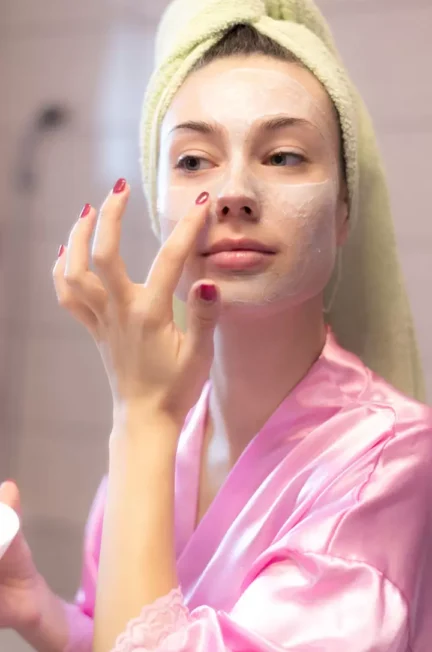Introduction
Oat oil, often hailed as “liquid gold” in the realm of natural beauty, is an unsung hero with remarkable properties that have been cherished for centuries. Derived from oats, specifically Avena sativa, oat oil’s gentle and meticulous cold-press extraction process ensures that it retains its natural nutrients and therapeutic benefits. In this comprehensive guide, we’ll delve into the meaning, benefits, pros, cons, intriguing fun facts, hair type considerations, and how to incorporate oat oil into your daily regimen. The information shared here is meticulously researched and sourced from reputable references to provide you with the most accurate insights.
Meaning and Extraction
Oat oil is precisely what its name implies—an oil extracted from oats. The specific variety used is Avena sativa. The extraction process is crucial; oat oil is obtained through cold-pressing, a method that preserves its natural nutrients and therapeutic properties. This careful process ensures that you’re harnessing the full potential of this liquid gold.
Benefits of Oat Oil
The benefits of oat oil extend to both your skin and hair, making it a versatile addition to your beauty routine:
- Soothing and Calming: Oat oil is renowned for its ability to soothe irritated skin and alleviate itching. This makes it an invaluable ally for those with sensitive or problematic skin.
- Hydration Powerhouse: As a superior moisturizer, oat oil is known for its ability to keep your skin and hair hydrated and soft. It’s rich in lipids, which lock in moisture and promote lasting hydration.
- Rich in Antioxidants: Packed with antioxidants, oat oil helps combat free radicals, which are responsible for premature aging and skin damage.
- Anti-Aging Properties: With regular use, oat oil can reduce the appearance of fine lines and wrinkles, restoring a youthful radiance to your skin.
Pros and Cons
As with any natural product, it’s essential to consider both the advantages and potential drawbacks of oat oil:
Pros:
- Suitable for All Skin Types: Oat oil is gentle and non-irritating, making it suitable for all skin types, especially sensitive skin.
- Non-Comedogenic: It doesn’t clog pores, making it safe for acne-prone individuals.
- Eczema and Psoriasis Relief: Oat oil is effective in soothing skin conditions like eczema and psoriasis.
- Hydration: It provides deep hydration for both skin and hair, leaving them soft and nourished.
Cons:
- Cost: Compared to some other oils, oat oil can be relatively expensive.
- Allergy Consideration: Individuals with oat allergies should be cautious and perform a patch test before use.
Fun Facts about Oat Oil
Here are some intriguing fun facts about oat oil that highlight its significance:
| Fun Fact | Description |
| 1. Ancient Origins | Oat oil has a rich history and has been used in skincare since ancient Egyptian times, a testament to its enduring efficacy. |
| 2. Powerful Emollient | Oat oil is celebrated as a potent emollient, known for its ability to soften and moisturize the skin, leaving it supple and velvety to the touch. |
| 3. Natural Sunscreen | Thanks to its natural UV filters, oat oil offers mild sun protection, making it a gentle shield against harmful UV rays. |
| 4. Perfect for Massage | Its smooth, luxurious texture makes it an ideal massage oil, enhancing relaxation and providing skin benefits simultaneously. |
Hair Type Considerations
Oat oil is a versatile choice for various hair types, with exceptional benefits for specific needs:
- Dry and Damaged Hair: Oat oil’s hydrating properties make it an excellent choice for reviving and nourishing dry and damaged hair, leaving it soft, manageable, and visibly healthier.
- Curly and Frizzy Hair: If you have curly hair prone to frizz, oat oil can be your go-to solution. It helps tame frizz and enhances your natural curl pattern, resulting in defined and bouncy curls.
How to Use Oat Oil
Incorporating oat oil into your daily routine is simple:
- Skincare: After cleansing, apply a few drops of oat oil to clean, damp skin. Gently massage it in to lock in moisture and soothe any irritation. It’s an excellent addition to your skincare routine, particularly for those with sensitive or dry skin.
- Haircare: Oat oil can be added to your regular conditioner for enhanced hydration. Alternatively, use it as a leave-in treatment by applying a few drops to the ends of your hair to add shine and protect against dryness and split ends.
Conclusion
Oat oil, often referred to as “liquid gold,” offers an array of benefits for your skin and hair. Whether you have sensitive skin in need of soothing, dry hair in need of hydration, or you simply want to enhance your natural beauty, oat oil is a versatile and revered resource. Always remember to conduct a patch test before using it, particularly if you have allergies or sensitivities.
Disclaimer: Consult with a dermatologist or healthcare professional before introducing new skincare or haircare products, especially if you have underlying skin conditions.
References:
- Healthline – Oat Oil Benefits
- The Dermatology Review – Oat Oil in Skincare
- Byrdie – Oat Oil Skincare Benefits
- NaturallyCurly – Benefits of Oat Oil for Curly Hair
- PubMed – Oats in Dermatology




